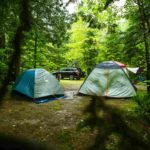Want to take your camping experience to the next level? Interested in learning how to camp without electricity? Then read on because this is just for you.
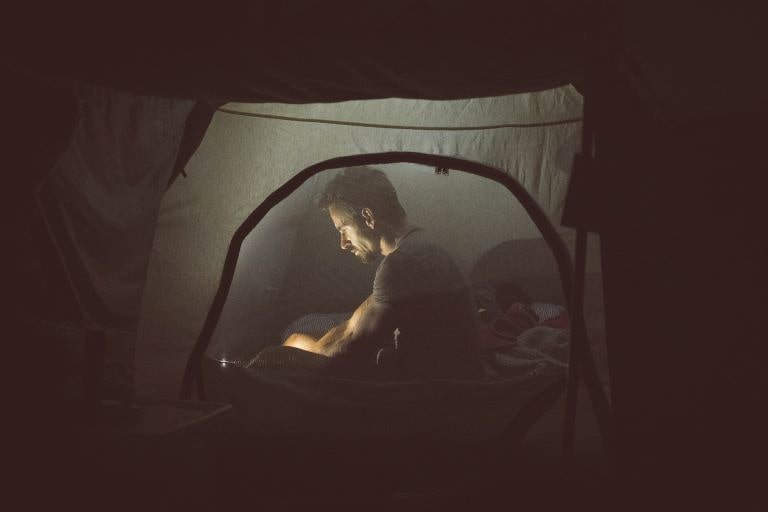
Dry camping, backcountry camping or simply choosing to stay at a campsite without a power hookup can be a rewarding experience. Going without the technologies of everyday life can give you a certain feeling of accomplishment and gratitude. When a camping trip free of electricity is complete, you’ll feel like you’ve hit the reset button for a little while.
However, the thought of going completely power free for a few days isn’t for everyone. Luckily for those people, even when you won’t be hooking into the power grid, there are still plenty of ways to get enough juice to accomplish the things you really need like cooking and night time lighting.
Here are a few tips on how to camp without electricity while not going completely neanderthal.
1) Camping without electricity makes way for other power sources
No electricity? No problem! These options may not give you the sustained power that being plugged in provides, but you can still get enough voltage to do all of the essentials and then some. Plus, with higher efficiency products on the market, you don’t need the kilowatts of your forefathers.
Batteries
Batteries have long powered the equipment we need when an extension cord wouldn’t reach. Although there are other more renewable power sources which have been gaining popularity for some time, the reliability and convenience of batteries remains unmatched. When one battery dies, it is easily changed with a fresh new one. Just remember to pack out the old ones and dispose of them back home.

Batteries can power everything from small equipment like flashlights to large camping appliances like tent heaters. Although that’s the case, I still like to keep battery powered devices small and light as they can become quite heavy for carrying. A few of my typical battery powered camping devices that provide great reliability and convenience include:
- Flashlight
- Radio
- Headlamp
- Lantern
- Speakers
Solar Powered Camping Equipment
Solar power has come a long way in recent years and the camping industry has sure taken notice. You can pretty much find a solar powered alternative for anything that can be battery operated.
While you won’t need to worry about packing extra batteries, you do need a little cooperation from the sun to provide a charge once in a while. Having said that, many gadgets are extremely energy efficient and can last for days without needing a recharge.
When the sun is shining, you’ll need to find a good location on your campsite that gets plenty of sun exposure so the panels can charge up during the day.
With solar powered equipment, you can opt to get the gear that is directly powered by it like rechargeable flashlights. Or you could purchase a few portable solar panels to run bigger camping gear such as radios and electric camping stoves among others.
Power Banks
You might start off thinking you’d rather disconnect from your phone entirely. After all, this is a camping trip without electricity. But your cell phone isn’t just a gateway to Facebook and Instagram. You might need it as a GPS on a day hike or of course, if an emergency arises.
While a power bank might not be able to run a radio, it can be a handy little tool for charging your phone so you can stay connected. Many power banks are solar powered themselves creating an endless cycle of phone life. Just charge the power bank during the day, charge the phone at night. Repeat, repeat, repeat.
Fuel
Choosing fuel powered camping equipment is an excellent choice when considering how to camp without electricity. There are many options, each with their own advantages and disadvantages. Oftentimes campers will have their favorites when it comes to choosing between propane vs kerosene vs gasoline.
Propane cook stoves are some of the most popular for camping trips. Propane lasts a long time, is lightweight and can be purchased in various size canisters.
Kerosene lanterns are still a popular choice as well. Kerosene burns efficiently so it can keep a dark area lit up for a long time without running out.
Gasoline is mostly used in generators which is an option in replacing electricity on your camping trip. However, gas powered generators can be quite loud and produce fumes that really take away from the beauty of your nature getaway. They’re also as heavy as a sack of bricks so you wouldn’t want to take one anywhere other than a car camping trip.
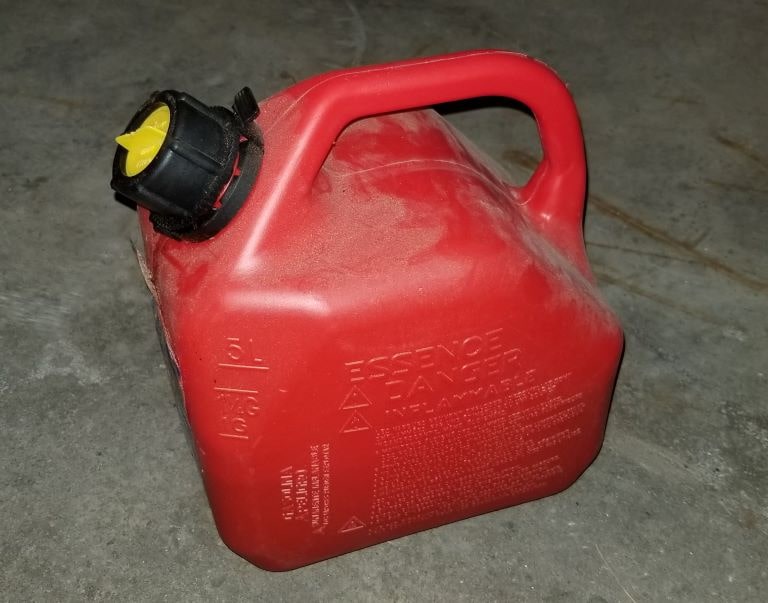
Related post: How to Keep a Tent Warm without Electricity
2) Camp Lighting without Electricity
Just because the sun goes down, that doesn’t mean that you have to. But you will likely need some source of light so you can still get around your campsite with ease. Building a roaring campfire is a must for any camping trip. And while the flames should provide plenty of light around the campfire, you’ll probably want a little something extra for finding your way around your tent in the middle of the night.
Flashlight
A good flashlight goes a long way when you’re searching through gear that’s been tucked away in your tent. Flashlights can be battery or solar powered and come in sizes from keychain to spot light. LED flashlights are super efficient so they’ll last for hours without draining batteries.
A good pocket sized LED camping flashlight can easily provide 100 lumens of light. If that’s not enough to suit your needs, spot lights with as many as 1,000 to 2,000 lumens should light up the night sky for you.
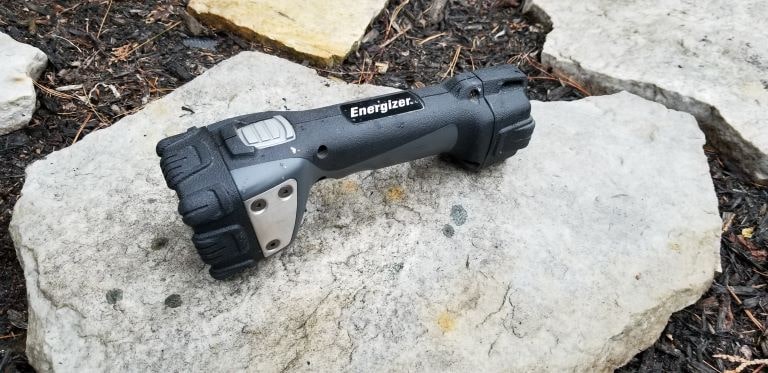
String Lights
Solar string lights add a great ambience to any campsite. They’re great for lighting up walkways around the site so no one trips and falls on their way to the bathroom or when it’s time to turn in for the night.
Lanterns
A battery powered, solar powered or propane lantern is great for using around the campsite. They can easily be hung from a tree branch to provide overhead light. They can also stand on their own so you can place it on a table or other surface and be hands free.
Most propane lanterns are powered by one pound propane canisters which can be refilled or switched out over and over again.
A battery powered lantern is ideal for using inside your tent. They can be hung from hooks in the ceiling of most tents so you don’t have to worry about trying to find it in the dark.
3) Camp Cooking without Electricity
One of the best parts of any camping trip definitely has to be the meals. Most people always overpack when it comes to food for camping. You can easily find yourself with a week’s worth of food for a weekend getaway. Prepping, cooking and eating is just so much more fun when you aren’t feeling pressured by your everyday schedules.
And completing all of the above doesn’t have to be any more difficult just because you won’t have electricity. You can still enjoy a cooked meal and honestly, it will be more satisfying. Another added perk? It will be tastier than ever.
Fire
The original way to cook a meal still holds a special place in the hearts of outdoor enthusiasts and campers alike. There is simply nothing like gathering some firewood, making a nice warm campfire and grilling some meat and veggies.
Swivel grills and tripod grills make cooking over an open flame a simple task. Regulating heat is as easy as it is on a BBQ and you’ll enjoy all the flavor’s of a pitmaster grill.
Of course, roasting marshmallows and making s’mores for the kids are still a couple of our favorite things to make over a campfire.
Aside from cooking, a campfire is also a great way to stay warm and cozy as the temperatures drop in the evening.
Gas
Gas cook stoves are popular both at the campground and at home. Their efficiency and reliability means a single tank of propane can last a long time so you don’t need to worry about running out to the fuel station for a fill up.
Propane canisters come in lots of different sizes as well. So you don’t always have to lug around a 20 pound tank. One pound canisters are a widely used resource for smaller camping cook stoves.
Gas cook stoves come in an abundance of different styles from standalone to table top and there are even varieties that can use your car hitch connection as a stand.
Aside from that there is also great flexibility with camping stoves so you can purchase a small single burner that’s great for making coffee and tea. Or you can get something bigger like a three-burner Coleman or Blackstone Griddle.
Durable Camp Cooking Pots and Pans
This is especially important if you plan to cook over the open campfire flame. High, unregulated heat can do a lot of damage to your typical kitchen pots and pans. A good cast iron frying pan and Dutch Oven work exceptionally well for camping as they won’t warp from high heat.
It’s also a good idea to bring along a good quality kettle so you can enjoy your morning coffee and boil water.
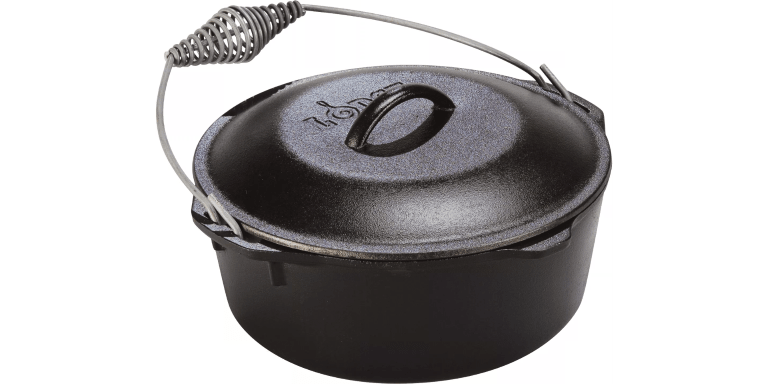
4) How to Camp without Electricity: Keeping Food Cold
Not having electricity to power a fridge means that you’ll need to find other ways to keep meat, dairy and other perishables cold so they don’t spoil. The cooling method you use will be somewhat dependent on the length of your camping trip. Certain products do well at keeping drinks cold for a day out at the beach, but they might not keep your milk from spoiling on a weekend camping getaway.
Coolers
A cooler can essentially be described as a fridge without the electrical hookup. These insulated boxes simply use ice instead of a refrigerant. How well it works to keep food cold for any length of time will depend on the insulating properties of the cooler. The better quality insulation used, the longer ice will stay frozen and the better it can work to keep food cold.
Just keep in mind that no matter how good your cooler is, it is useless if it’s been left open an extended time. Frequent in and out will also reduce its effectiveness as cool air will exit every time it’s opened.
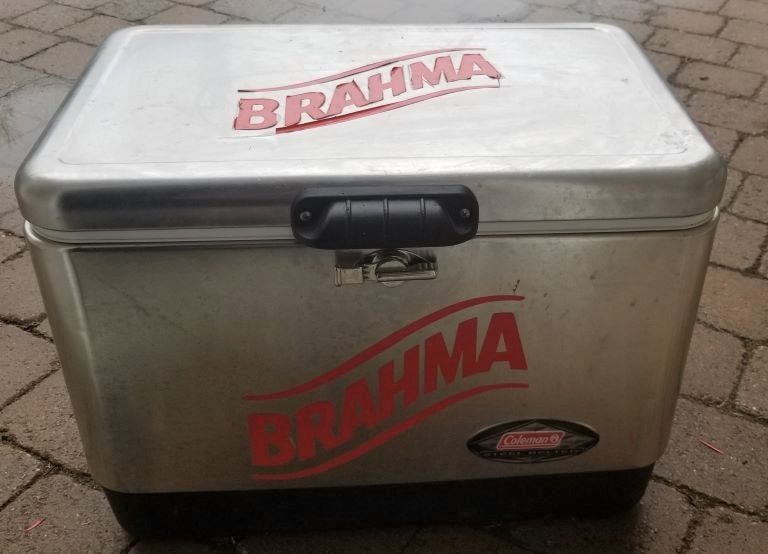
If you’ve got the space for it, it’s best to have one cooler solely for things like meat, milk and cheese that is only opened a couple times a day. That way you should be able to get a few days out of your ice with no problem.
Keeping drinks as well as the foods that are used frequently in a separate cooler can help keep the more important foods from spoiling. Just know that you might need to run out for a bag of ice for your drinks on longer trips.
Dry Ice
Dry ice is the solid form of carbon dioxide and is often used as an alternative to regular ice for keeping food cold.
Because it is not formed from water, when it dries it won’t leave your food in a puddle. Rather it turns back into a gas. For this reason though, the carbon dioxide gases do have the potential to become dangerous. When using dry ice, there are a few precautions that need to be considered.
5) Camping food without a fridge
If you’re planning on camping without electricity for more than a few days, it’ll be tough to keep food cold. So you’ll likely want to bring as much non refrigerated food as possible. But how do you still make a satisfying meal?
You can get a little creative and find some camping food that doesn’t need a fridge.
Canned foods and soups are great for quick lunches and don’t need to be kept cold.
Freeze as many foods as possible
Rather than filling the cooler with bags and bags of ice, it’s worth it to use as much frozen food as possible to keep things cold. Frozen meats are one option. But there are plenty of other foods that freeze well also. A frozen zip loc bag of pancake batter will work exceptionally well and as it melts, breakfast is already prepared.
There are also some pretty tasty freeze dried camping meals that you could give a try. There are all kinds of flavors to choose from like lasagna, mac and cheese and even chicken and dumplings.
You could also try your luck at fishing. Fishing is a great pastime whether you’re solo camping or you’ve got the family with you. The kids will love the experience and if you all catch a fish to fry up for dinner it’ll be an unforgettable experience. However, it’s tough to rely on this one. If you get skunked, you’ll be left hungry and grumpy.
Final thoughts for how to camp without electricity
If you enjoy camping, there’s a good chance that you won’t have an electrical outlet to plug into. That’s especially true if you’re planning a backcountry excursion trying to get away from the crowds of campgrounds. Just because you won’t have electricity, that doesn’t mean you can’t still power the most essential items in your camping gear.
Have any other suggestions for camping without electricity? Let us know in the comments.
We love writing about the things that make a real difference in your outdoor experience. We hope you love this piece on how to camp without electricity. Some of the links in this post are affiliate links in which case we may earn a small commission at no extra cost to you if you make a purchase. We truly appreciate you taking the time to read our content and hope it has added value to your next camping and outdoor adventure.



